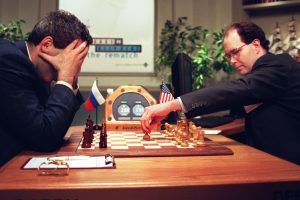 Steven Strogatz in the NYT:
Steven Strogatz in the NYT:
The question now is whether machine learning can help humans discover similar truths about the things we really care about: the great unsolved problems of science and medicine, such as cancer and consciousness; the riddles of the immune system, the mysteries of the genome.
The early signs are encouraging. Last August, two articles in Nature Medicine explored how machine learning could be applied to medical diagnosis. In one, researchers at DeepMind teamed up with clinicians at Moorfields Eye Hospital in London to develop a deep-learning algorithm that could classify a wide range of retinal pathologies as accurately as human experts can. (Ophthalmology suffers from a severe shortage of experts who can interpret the millions of diagnostic eye scans performed each year; artificially intelligent assistants could help enormously.)
The other article concerned a machine-learning algorithm that decides whether a CT scan of an emergency-room patient shows signs of a stroke, an intracranial hemorrhage or other critical neurological event. For stroke victims, every minute matters; the longer treatment is delayed, the worse the outcome tends to be. (Neurologists have a grim saying: “Time is brain.”) The new algorithm flagged these and other critical events with an accuracy comparable to human experts — but it did so 150 times faster. A faster diagnostician could allow the most urgent cases to be triaged sooner, with review by a human radiologist.
What is frustrating about machine learning, however, is that the algorithms can’t articulate what they’re thinking.
More here.
